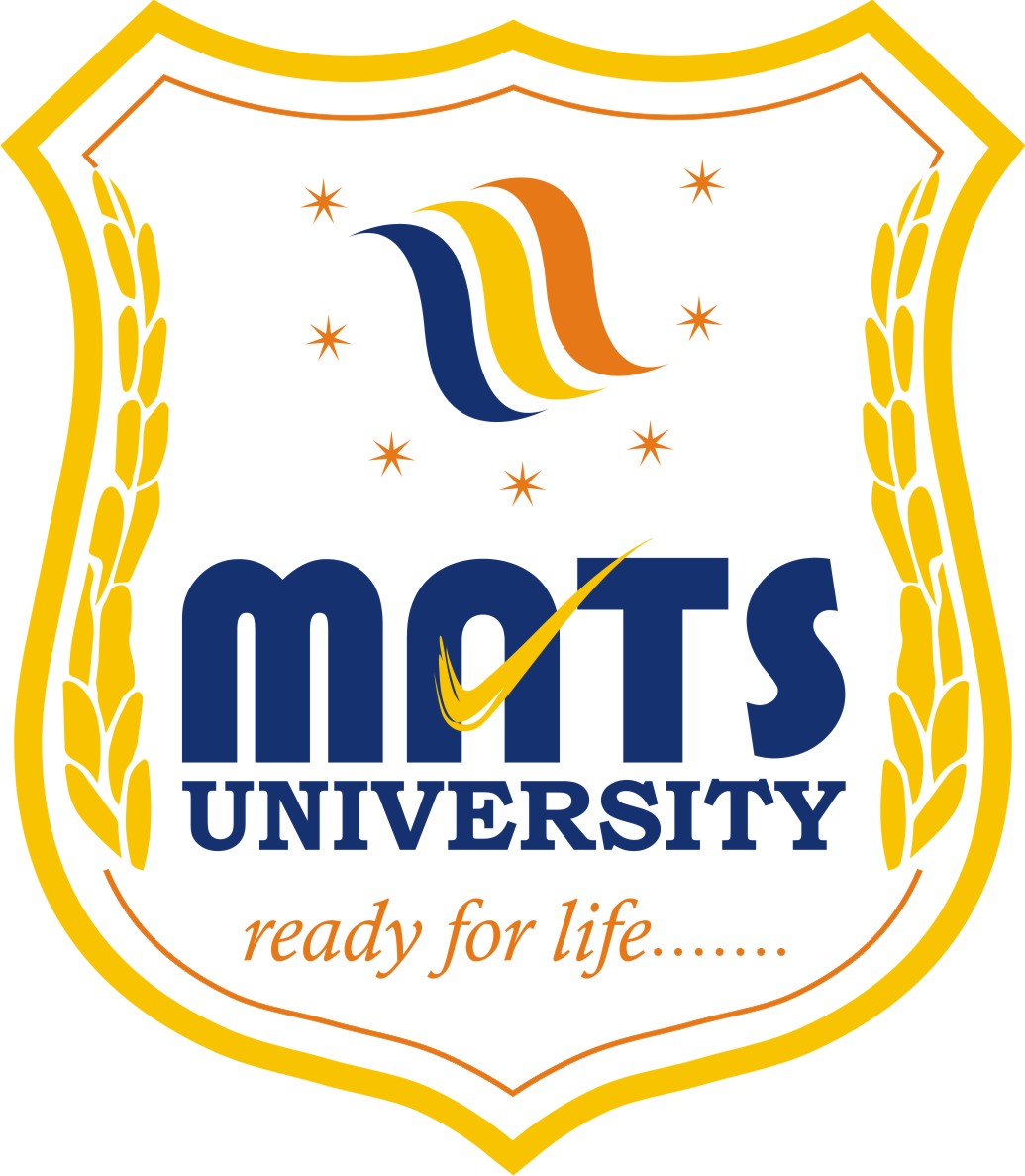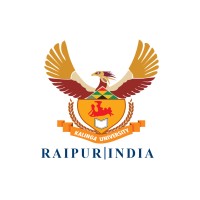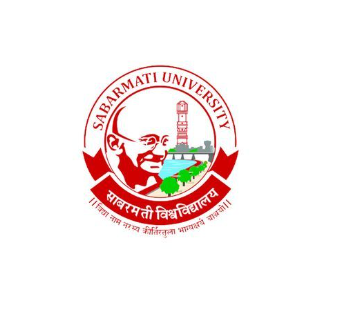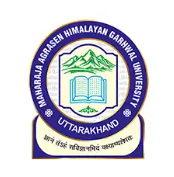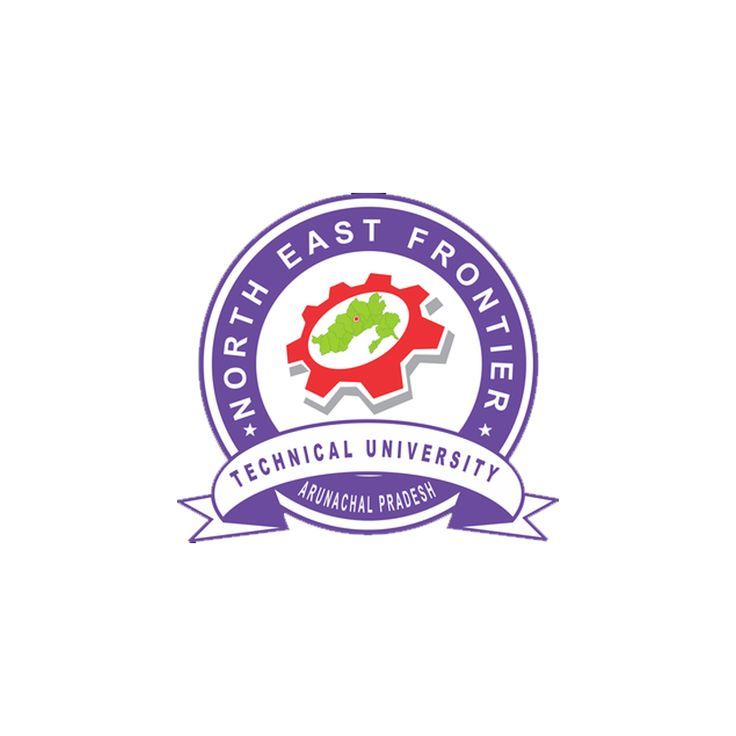Ph.D. Nano Chemistry Admissions Open 2024-25

Hello, Friends, My Name
is Navneet Singh Content Creator
in this Article I Cover all of Ph.D.
Nano Chemistry
2024-25 (Unlock the world of cutting-edge research in Nanochemistry with our Ph.D. admission program. Discover innovative breakthroughs and pursue your academic passion. Apply now)
Please read all articles and give valuable suggestions in the Comment Box.
Ph.D. Nano Chemistry Admission Highlights.
The Ph.D. Nanochemistry admission process involves several stages, from application submission to the final selection of candidates. In this 500-word explanation, I will outline the general admission process and discuss the typical selection criteria for Ph.D. Nanochemistry programs.
The admission process for a Ph.D. in Nanochemistry varies among universities and institutions. However, it generally follows a set of common steps. The process typically begins with the announcement of the admission cycle, during which interested candidates can apply for the program. Let's delve into each step in more detail:
Announcement of Admission Cycle: Universities and institutions announce the commencement of the admission cycle for Ph.D. Nanochemistry programs. This information is usually available on their official websites and other relevant platforms.
Application Submission: Prospective candidates must complete the application form, which includes providing personal details, educational background, research experience, statement of purpose, and other supporting documents. These documents may include academic transcripts, recommendation letters, and a curriculum vitae (CV). Candidates should ensure that they submit all required documents within the specified deadline.
Screening of Applications: Once the application submission period concludes, the admissions committee reviews the received applications. They evaluate the candidates based on their academic qualifications, research experience, statement of purpose, and other supporting documents. This initial screening helps identify eligible candidates for further evaluation.
Entrance Examination: Many universities require candidates to take a standardized entrance examination. The purpose of the exam is to assess the candidates' knowledge in relevant subjects, such as chemistry, nanoscience, and materials science. The examination may consist of multiple-choice questions, analytical problems, and/or essay questions.
Interview: Shortlisted candidates are invited for an interview, either in person or through video conferencing. The interview provides an opportunity for the admissions committee to assess the candidates' research potential, communication skills, and their alignment with the program's objectives. It may involve a panel of faculty members, who ask questions related to the candidate's research interests, academic background, and future goals.
Selection and Offer of Admission: After considering the candidates' performance in the application, entrance examination, and interview, the admissions committee makes the final selection. Successful candidates are then offered admission into the Ph.D. Nanochemistry program. The offer usually includes details about financial support, such as research assistantships or fellowships, if applicable.
Selection criteria for Ph.D. Nanochemistry programs typically revolve around the following aspects:
Academic Qualifications: Candidates are assessed based on their academic records, including their undergraduate and postgraduate coursework, grades, and any research publications or projects. A strong foundation in chemistry, nanoscience, and related disciplines is highly desirable.
Research Experience: Prior research experience, particularly in the field of nanochemistry or a related area, is advantageous. The admissions committee considers the quality and relevance of the research projects or internships that candidates have undertaken.
Statement of Purpose: The candidate's statement of purpose plays a crucial role in the selection process. It should highlight their research interests, career goals, and how pursuing a Ph.D. in Nanochemistry aligns with their aspirations. Demonstrating a clear motivation for research and a well-defined research plan is important.
Entrance Examination Performance: The performance of candidates in the entrance examination is taken into consideration. A good score indicates a solid understanding of the fundamental concepts and principles in chemistry and nanoscience.
Letters of Recommendation: Strong letters of recommendation from professors, research advisors, or employers who can attest to the candidate's academic abilities, research potential, and personal qualities are valuable in the selection process.
Interview Performance: The interview allows the admissions committee to gauge the candidate's communication skills, critical thinking abilities, and suitability for the program. Demonstrating enthusiasm, knowledge of the field, and a clear research vision can positively impact the selection decision.
It is important to note that the specific admission process and selection criteria may vary among universities and institutions. Therefore, prospective candidates should carefully review the requirements and guidelines provided by the respective Ph.D. Nanochemistry programs they wish to apply to.
Ph.D. Nano Chemistry Process and Selection Criteria.
The Ph.D. Nanochemistry program offers an exciting opportunity for students to engage in advanced research and contribute to the rapidly evolving field of nanoscience. In this 500-word explanation, I will highlight the key features and benefits of pursuing a Ph.D. in Nanochemistry.
Cutting-Edge Research: The Ph.D. Nanochemistry program is designed to foster cutting-edge research in the field of nanoscience. Students have the opportunity to work alongside renowned faculty members and researchers who are at the forefront of nanotechnology advancements. This research-intensive program allows students to delve into various sub-disciplines of Nanochemistry, such as nanomaterials synthesis, characterization techniques, nanobiotechnology, and nanoelectronics.
Interdisciplinary Approach: Nanochemistry is inherently interdisciplinary, drawing from the fields of chemistry, materials science, physics, and biology. The Ph.D. program encourages interdisciplinary collaborations, providing students with a broader perspective and the opportunity to work with experts from diverse backgrounds. This interdisciplinary approach promotes innovation and enables students to tackle complex research problems from multiple angles.
State-of-the-Art Facilities: Ph.D. Nanochemistry programs are typically associated with institutions that possess state-of-the-art research facilities. These facilities include advanced microscopy and spectroscopy equipment, cleanroom facilities for nanofabrication, and specialized laboratories for nanomaterial synthesis and characterization. Access to such cutting-edge infrastructure empowers students to conduct high-quality research and explore new frontiers in Nanochemistry.
Mentorship and Guidance: Throughout the Ph.D. journey, students benefit from close mentorship and guidance from experienced faculty members. These mentors not only provide academic support but also assist students in developing their research skills, critical thinking abilities, and problem-solving capabilities. The mentor-student relationship helps shape the students' research directions and ensures their academic and professional growth.
Scholarly Community: Ph.D. Nanochemistry programs foster a vibrant scholarly community, where students can interact with their peers and engage in intellectual discussions. Seminars, workshops, and conferences provide platforms for students to present their research findings, receive feedback, and broaden their knowledge through exposure to diverse research areas. This scholarly community cultivates a collaborative and stimulating environment that nurtures creativity and fosters a lifelong network of professional connections.
Career Opportunities: A Ph.D. in Nanochemistry opens doors to a wide range of career opportunities. Graduates can pursue academic careers as professors or researchers at universities, where they can continue their research and mentor the next generation of scientists. Additionally, the industrial sector offers numerous job prospects in fields such as nanomaterials manufacturing, pharmaceuticals, energy storage, electronics, and environmental science. The multidisciplinary nature of Nanochemistry equips graduates with versatile skills that are highly sought after in both academia and industry.
Impactful Research Contributions: Ph.D. Nanochemistry graduates have the potential to make significant contributions to society through their research. Nanoscience and Nanochemistry have transformative applications in various sectors, including healthcare, electronics, energy, and environmental sustainability. By developing innovative nanomaterials, nanodevices, and nanotechnologies, Ph.D. graduates can contribute to advancements that improve human health, enhance technological capabilities, and address global challenges.
Ph.D. Nano Chemistry Understanding the Syllabus and Exam Pattern.
Understanding the syllabus and exam pattern is crucial for prospective students planning to pursue a Ph.D. in Nanochemistry. In this 500-word explanation, I will provide an overview of the typical syllabus and exam pattern for a Ph.D. Nanochemistry program.
Syllabus:
The syllabus of a Ph.D. Nanochemistry program covers a wide range of topics related to nanoscience, chemistry, materials science, and their interdisciplinary applications. While specific courses may vary among institutions, here are some common areas that are typically included in the syllabus:
Nanomaterials: This section focuses on the synthesis, characterization, and properties of various nanomaterials, including nanoparticles, nanowires, nanotubes, and thin films. It explores the principles of nanoscale materials and their applications in fields such as catalysis, energy storage, and electronics.
Nanoscale Characterization Techniques: Students learn about advanced characterization techniques used to investigate nanomaterials and nanostructures. This may include topics such as scanning probe microscopy, transmission electron microscopy (TEM), atomic force microscopy (AFM), X-ray diffraction (XRD), and spectroscopic techniques.
Nanoscale Science and Quantum Effects: This section delves into the fundamental principles governing nanoscale phenomena and quantum effects. Students explore quantum mechanics, quantum confinement, quantum dots, and their implications in nanoscience.
Nanobiotechnology: This area focuses on the interface of nanotechnology and biology, covering topics such as nanoparticle-based drug delivery systems, nanosensors for biological applications, and nanomaterials in tissue engineering.
Nanoelectronics: Students gain insights into nanoelectronics and the fabrication of nanoscale electronic devices. The syllabus covers topics such as nanofabrication techniques, nanowire/nanotube-based devices, and emerging concepts like spintronics and quantum computing.
Nanochemistry and Self-Assembly: This section explores the principles of self-assembly and supramolecular chemistry in the context of nanoscience. It covers topics such as self-assembled monolayers, nanoparticle self-assembly, and bottom-up fabrication approaches.
Nanotoxicology and Environmental Impacts: Students learn about the potential environmental and health impacts of nanomaterials and nanotechnology. This includes topics like risk assessment, safety protocols, and sustainable approaches in nanoscience.
Exam Pattern:
The exam pattern for a Ph.D. Nanochemistry program typically includes written examinations, practical assessments, and oral presentations. The specific details may vary among institutions, but the following components are commonly found:
Written Examinations: These exams evaluate the students' understanding of theoretical concepts, problem-solving abilities, and knowledge of key topics covered in the syllabus. The exams may consist of essay questions, short-answer questions, and/or multiple-choice questions.
Laboratory Assessments: Practical assessments test the students' laboratory skills and their ability to carry out experiments related to nanoscale materials synthesis, characterization techniques, and data analysis. Students may be required to perform experiments, analyze results, and present their findings in a comprehensive report format.
Research Proposal and Presentation: Ph.D. students are often required to prepare and present a research proposal on their chosen research topic. This component assesses their ability to identify research gaps, develop a research plan, and effectively communicate their ideas to an audience of faculty members and peers.
Comprehensive Viva Voce: The viva voce examination is an oral examination where students defend their research work, answer questions related to their field of study, and demonstrate their overall understanding of the subject matter. It provides an opportunity for faculty members to assess the students' knowledge, critical thinking, and research acumen.
It is important to note that the exam pattern and assessment methods may vary among universities and institutions. Therefore, prospective students should review the specific requirements and guidelines provided by the Ph.D. Nanochemistry programs they are interested in.
How to Apply for Ph.D. Nano Chemistry?
Applying for a Ph.D. in Nanochemistry with a focus on Knowledge Management involves several important steps. In this 500-word explanation, I will guide you through the application process for a Ph.D. Nanochemistry program with an emphasis on knowledge management.
Research the Programs: Start by researching universities and institutions that offer Ph.D. programs in Nanochemistry with a specialization in Knowledge Management. Look for programs that align with your research interests and career goals. Explore faculty profiles, research areas, and available resources related to knowledge management in Nanochemistry.
Contact Potential Supervisors: Reach out to potential supervisors who specialize in Nanochemistry and knowledge management. Introduce yourself, express your interest in their research, and inquire about potential Ph.D. positions in their research groups. Building a connection with potential supervisors early on can greatly enhance your application.
Prepare Application Materials: Gather the necessary documents for your application. This typically includes academic transcripts, curriculum vitae (CV), statement of purpose, letters of recommendation, and any additional requirements specified by the program or institution. Tailor your application materials to highlight your interest and experience in Nanochemistry and knowledge management.
Academic Transcripts: Collect official transcripts from all your previous academic institutions. These transcripts should demonstrate a strong academic background in relevant fields such as chemistry, materials science, or nanoscience.
Curriculum Vitae (CV): Prepare a comprehensive CV that includes your educational background, research experience, publications, conference presentations, awards, and relevant skills. Highlight any knowledge management experiences, such as organizing research data, developing databases, or collaborating on knowledge-sharing initiatives.
Statement of Purpose: Craft a compelling statement of purpose that outlines your research interests, career goals, and why you are interested in pursuing a Ph.D. in Nanochemistry with a focus on knowledge management. Clearly articulate how you plan to integrate knowledge management principles into your research and explain how it aligns with the objectives of the program.
Letters of Recommendation: Request letters of recommendation from professors or professionals who can speak to your academic abilities, research potential, and aptitude for knowledge management. Choose recommenders who can provide specific examples of your skills and potential in the field.
Prepare for Entrance Examinations: Many Ph.D. programs require applicants to take standardized entrance examinations, such as the GRE (Graduate Record Examination) or subject-specific exams. Familiarize yourself with the exam format, content, and scoring criteria. Allocate time for adequate preparation and consider enrolling in preparatory courses or utilizing study materials to enhance your performance.
Submit Applications: Follow the application guidelines provided by the programs you are applying to. Submit your completed application materials within the specified deadline. Ensure that all documents are properly formatted, proofread, and uploaded or mailed as per the requirements.
Attend Interviews: If shortlisted, you may be invited for an interview, either in person or through video conferencing. Prepare for the interview by reviewing your research interests, potential knowledge management strategies, and the work of the faculty members you may be working with. Be prepared to discuss your academic and research experiences, as well as your future goals in Nanochemistry and knowledge management.
Funding and Scholarships: Research available funding opportunities and scholarships offered by the university or external organizations. Explore options such as research assistantships, teaching assistantships, fellowships, or grants. Check the application deadlines for these funding opportunities and submit any additional documents or forms required for consideration.
Acceptance and Enrollment: After the selection process is completed, you will receive admission decisions from the respective Ph.D. programs. If accepted, carefully review the admission offer, including details of financial support, research resources, and program requirements. Follow the enrollment instructions provided and complete the necessary paperwork to secure your position in the Ph.D. program.
Ph.D. Nano Chemistry Required Document for Admission?
When applying for a Ph.D. in Nanochemistry, it is important to submit a set of required documents to complete your application. These documents help the admissions committee assess your qualifications, research potential, and suitability for the program. In this 500-word explanation, I will outline the typical documents that are commonly required for admission to a Ph.D. Nanochemistry program.
Academic Transcripts: Official academic transcripts from all previous educational institutions are a crucial requirement. These transcripts should provide a comprehensive record of your academic performance, including courses taken, grades obtained, and the degree awarded. Transcripts should be provided for undergraduate and postgraduate degrees, including any relevant coursework in chemistry, materials science, nanoscience, or related fields.
Curriculum Vitae (CV) or Resume: A well-structured CV or resume should be included in your application. This document highlights your educational background, research experience, publications, presentations, honors, awards, and relevant skills. Include details about any research projects you have undertaken, internships, industry experience, or other scientific achievements that demonstrate your expertise and potential in Nanochemistry.
Statement of Purpose (SOP): The SOP is a crucial component of your application. It is a personal statement that outlines your academic and research background, your motivation for pursuing a Ph.D. in Nanochemistry, and your future goals. Clearly articulate your research interests, the specific areas of Nanochemistry you wish to explore, and how your research aligns with the program's objectives. Highlight any prior knowledge management experiences or initiatives you have been involved in and explain how you plan to integrate knowledge management principles into your Ph.D. research.
Letters of Recommendation: Typically, Ph.D. programs require two or three letters of recommendation from individuals who can attest to your academic abilities, research potential, and suitability for the program. Choose recommenders who are familiar with your work and can provide detailed insights into your capabilities. These recommenders may include professors, research advisors, or industry professionals who have directly supervised or collaborated with you. Provide them with ample time to write your recommendation letters and ensure that they are submitted before the application deadline.
Entrance Examination Scores: Some Ph.D. programs may require standardized test scores as part of the application process. The most common exam is the Graduate Record Examination (GRE), which assesses verbal reasoning, quantitative reasoning, and analytical writing skills. Check the specific requirements of the programs you are applying to and register for the appropriate exams. Be sure to submit your official scores directly to the institutions as per their guidelines.
English Language Proficiency Test Scores: For international applicants whose first language is not English, most institutions require proof of English language proficiency. Commonly accepted tests include the Test of English as a Foreign Language (TOEFL) or the International English Language Testing System (IELTS). Ensure that you fulfill the minimum required scores and submit the official score reports.
Reseach Proposal (if applicable):ch Proposal (if applicable):rch Proposal (if applicable): Some Ph.D. programs may ask for a research proposal outlining your intended research topic or area of interest. This proposal should provide an overview of the problem statement, objectives, methodology, and potential impact of your proposed research. Align your research proposal with the program's focus on Nanochemistry and knowledge management. Other Supporting Documents:
Nanochemistry and knowledge management.
Other Supporting Documents:
Depending on the specific requirements of the program, you may be asked to submit additional documents. These could include a writing sample, portfolio, or any other materials that showcase your research or scientific achievements.
It is essential to review the application guidelines of each Ph.D. program you are applying to as requirements may vary. Ensure that all documents are well-organized, accurately formatted, and provided within the specified deadlines.
Ph.D. Nano Chemistry Specializations and Course Structure.
A Ph.D. in Nanochemistry offers various specializations that allow students to delve deeper into specific areas of research within the field. These specializations provide focused knowledge and expertise in particular sub-disciplines of Nanochemistry. In this 500-word explanation, I will highlight some common specializations and provide an overview of the typical course structure for a Ph.D. in Nanochemistry.
Specializations in Ph.D. Nanochemistry:
Nanomaterials: This specialization focuses on the synthesis, characterization, and application of nanomaterials. Students explore the properties, fabrication methods, and functionalization techniques of various nanomaterials, including nanoparticles, nanowires, nanotubes, and thin films. They delve into the study of their physical, chemical, and mechanical properties, as well as their applications in fields such as catalysis, energy storage, sensors, and electronics.
Nanobiotechnology: This specialization explores the intersection of nanotechnology and biology. Students learn about the design and development of nanoscale tools and devices for biomedical applications. They study topics such as nanoparticle-based drug delivery systems, nanosensors for biological detection, nanomaterials in tissue engineering, and nanotoxicology. The specialization emphasizes the use of nanotechnology to address challenges in healthcare, diagnostics, and therapeutics.
Nanoelectronics: Nanoelectronics focuses on the design, fabrication, and characterization of nanoscale electronic devices. Students delve into the principles of nanoelectronics, including nanoscale transistor technologies, nanowire/nanotube-based devices, and emerging concepts such as spintronics and quantum computing. This specialization equips students with the skills needed to advance electronic devices into the nanoscale realm, enabling faster, smaller, and more efficient electronics.
Nanophotonics: This specialization explores the interactions of light with nanoscale structures and materials. Students study topics such as plasmonics, photonic crystals, and metamaterials. They learn how to manipulate and control light at the nanoscale for applications in areas such as optical sensing, imaging, and communication. This specialization combines the principles of optics, electromagnetics, and nanomaterials to harness the unique optical properties exhibited at the nanoscale.
Course Structure for Ph.D. Nanochemistry:
The course structure for a Ph.D. in Nanochemistry may vary depending on the institution and the specific research interests of the student. However, there are common components and milestones that are typically encountered throughout the program:
Coursework: Ph.D. students in Nanochemistry typically undertake a series of advanced coursework during the initial stages of their program. These courses provide a strong foundation in core areas of Nanochemistry and related disciplines, such as nanomaterials, nanoscale characterization techniques, nanophysics, and nanobiotechnology. The coursework ensures that students acquire the necessary theoretical knowledge and technical skills to pursue their research.
Qualifying Examination: After completing the required coursework, students often undergo a qualifying examination. This examination assesses their knowledge and understanding of the core concepts in Nanochemistry. It typically involves written exams and/or oral presentations that evaluate the students' ability to synthesize and communicate their understanding of the subject matter.
Research and Dissertation: The centerpiece of a Ph.D. program is the research component. Students work closely with their research advisors and collaborators to conduct independent research in their chosen specialization. They design and carry out experiments, analyze data, and contribute new knowledge to the field through their research findings. The culmination of the research is the completion of a doctoral dissertation, which is a comprehensive document that showcases the student's original research and scholarly contributions.
Seminars and Presentations: Ph.D. students are often required to participate in seminars, conferences, and scientific meetings to present their research progress and findings. These platforms allow students to communicate their work, receive feedback from experts in the field, and foster collaborations with other researchers. It also helps develop important skills in scientific communication and networking.
Publications and Manuscripts: Throughout their Ph.D. journey, students are encouraged to publish their research findings in peer-reviewed scientific journals. Publishing in reputable journals contributes to the dissemination of knowledge and establishes the student's reputation within the scientific community. It also enhances their academic and professional profile, which can be advantageous for future career prospects.
Defense and Graduation: The final step in a Ph.D. program is the oral defense of the dissertation. Students present their research work to a committee of faculty members who evaluate the quality and significance of the research. Successful defense leads to the award of the Ph.D. degree in Nanochemistry.
It is important to note that the specific course structure and requirements may vary among institutions. Students should consult the guidelines provided by their respective Ph.D. programs to obtain detailed information about the coursework, milestones, and specialization options available to them.
Job Opportunities and Salary after Earning a Ph.D. Nano Chemistry.
Earning a Ph.D. in Nanochemistry opens up a wide range of job opportunities in various sectors, including academia, industry, government research laboratories, and consulting firms. Graduates with a Ph.D. in Nanochemistry possess specialized knowledge and advanced research skills that are highly valued in the rapidly growing field of nanotechnology. In this 500-word explanation, I will discuss some potential job opportunities and the salary prospects for individuals with a Ph.D. in Nanochemistry.
Academic Research and Teaching: Many Ph.D. Nanochemistry graduates pursue careers in academia as research scientists and professors. They can work as postdoctoral researchers, conducting cutting-edge research in academic institutions and collaborating with other scientists. With relevant teaching experience and a strong research track record, graduates may also secure faculty positions, where they contribute to the education and training of future scientists and conduct their own independent research.
Industrial Research and Development: The industrial sector offers a wide range of research and development (R&D) opportunities for Ph.D. Nanochemistry graduates. They can work in industries such as pharmaceuticals, materials science, electronics, energy, and biotechnology. Roles may involve developing new materials, optimizing manufacturing processes, designing and characterizing nanoscale devices, or formulating nanomedicines. Graduates may also work in product development, innovation, and technology transfer departments within companies.
Government Research Laboratories: Many governments and governmental agencies have dedicated research laboratories focused on nanotechnology and nanoscience. Ph.D. Nanochemistry graduates can find employment in these institutions, working on projects related to nanomaterials, nanoelectronics, nanophotonics, or nanobiotechnology. Such positions offer the opportunity to contribute to important research initiatives, collaborate with experts in the field, and contribute to policy and regulatory aspects of nanotechnology.
Consulting and Intellectual Property: Graduates with a Ph.D. in Nanochemistry can also pursue careers in consulting firms or intellectual property (IP) law firms. They can provide expert advice on nanotechnology-related projects, assist in technology transfer and commercialization efforts, and offer guidance on regulatory compliance and risk assessment. Additionally, graduates may work as patent agents or attorneys, helping clients protect their nanotechnology inventions and navigate the complexities of IP law.
Entrepreneurship and Startups: With their specialized knowledge and research expertise, Ph.D. Nanochemistry graduates may choose to start their own companies or join startups in the nanotechnology sector. They can develop and commercialize innovative nanomaterials, nanodevices, or nanomedicines. Entrepreneurial ventures offer the opportunity to translate research outcomes into practical applications, contribute to technological advancements, and potentially benefit from the financial success of their ventures.
Salary Prospects:
Salary prospects for Ph.D. Nanochemistry graduates vary depending on factors such as the job sector, geographical location, level of experience, and the specific role undertaken. While salaries can differ significantly, here are some approximate salary ranges for different positions:
Postdoctoral Researcher: Typically, postdoctoral researchers earn an annual salary ranging from $45,000 to $60,000, depending on the institution and location. These positions often provide additional benefits, such as health insurance and access to research facilities.
Research Scientist in Industry: Research scientists in the industrial sector can earn salaries ranging from $70,000 to $120,000 or more, depending on the level of experience, job responsibilities, and the size and type of the company.
Faculty Positions: Salaries for faculty positions in academia vary depending on the institution, rank, and location. Assistant professors can earn between $60,000 and $90,000 per year, while associate and full professors may earn higher salaries ranging from $80,000 to $150,000 or more.
Government and Research Institutions: Salaries in government research laboratories and institutions vary depending on the country and level of experience. Generally, salaries can range from $60,000 to $100,000 or more for scientists and researchers.
Consulting and Entrepreneurship: Salaries in consulting and entrepreneurship can be highly variable, depending on the success of the business venture. Entrepreneurial ventures may offer the potential for significant financial rewards, but they also involve higher risks.
It is important to note that these salary ranges are approximate and can vary based on individual circumstances and market conditions. Additional factors such as bonuses, incentives, and benefits can also impact overall compensation packages.
Ph.D. Nano Chemistry in Distance Admission FAQs and answer.
Q: Can I pursue a Ph.D. in Nanochemistry through distance learning?
A: Yes, several universities offer Ph.D. programs in Nanochemistry through distance learning or online platforms. However, it is important to ensure that the program is accredited and provides the necessary resources for research and academic support.
Q: What are the admission requirements for a distance Ph.D. in Nanochemistry?
A: Admission requirements typically include a master's degree in a relevant field, academic transcripts, letters of recommendation, statement of purpose, research proposal, and qualifying examination scores (if applicable). Each institution may have specific requirements, so it is advisable to check with the university you are interested in.
Q: How does distance learning for a Ph.D. in Nanochemistry work?
A: Distance learning programs typically provide online lectures, course materials, and interactive platforms for discussions and assignments. Research work can be conducted remotely, but occasional visits to the university or research lab may be required for practical work and consultations with supervisors.
Q: Can I conduct laboratory experiments for my research during a distance Ph.D. program?
A: Distance Ph.D. programs usually incorporate methods for remote access to laboratory facilities, collaborative research projects, or use of existing datasets. However, the availability of laboratory experiments may vary depending on the program and the specific research requirements.
Q: How are assessments and examinations conducted in a distance Ph.D. program?
A: Assessments and examinations are usually conducted online through assignments, research papers, presentations, and virtual examinations. Some programs may require students to visit the university for oral examinations or defense of their dissertation.
Q: Can I work while pursuing a distance Ph.D. in Nanochemistry?
A: Working while pursuing a Ph.D. can be challenging due to the demands of research and coursework. However, distance Ph.D. programs offer flexibility, allowing students to manage their studies alongside professional commitments. It is essential to strike a balance and ensure sufficient time and focus for research.
Q: Can I choose a specialization within Nanochemistry for my distance Ph.D. program?
A: Yes, distance Ph.D. programs often offer specializations or allow students to tailor their research to a specific area within Nanochemistry. Students can choose their research focus and work closely with supervisors to develop a specialized research project.
Q: How long does it take to complete a distance Ph.D. in Nanochemistry?
A: The duration of a distance Ph.D. program can vary depending on factors such as research progress, publication requirements, and the time dedicated to the program. On average, it can take around 3-6 years to complete a distance Ph.D. program.
Q: Are there any scholarships or funding options available for distance Ph.D. programs?
A: Scholarships and funding options may be available for distance Ph.D. programs, but they can vary depending on the institution and country. It is advisable to explore scholarship opportunities, research grants, or funding options specific to the field of Nanochemistry.
Q: What are the career prospects after completing a distance Ph.D. in Nanochemistry?
A: Graduates of distance Ph.D. programs in Nanochemistry have diverse career prospects. They can pursue academic positions as researchers or professors, work in industrial R&D, join government laboratories, engage in consulting or entrepreneurship, or contribute to policy-making in the field of nanotechnology.
It is important to note that the specific details and requirements of distance Ph.D. programs can vary among universities. Therefore, it is recommended to thoroughly research and contact the universities offering distance Ph.D. programs in Nanochemistry for accurate and up-to-date information regarding their programs.


